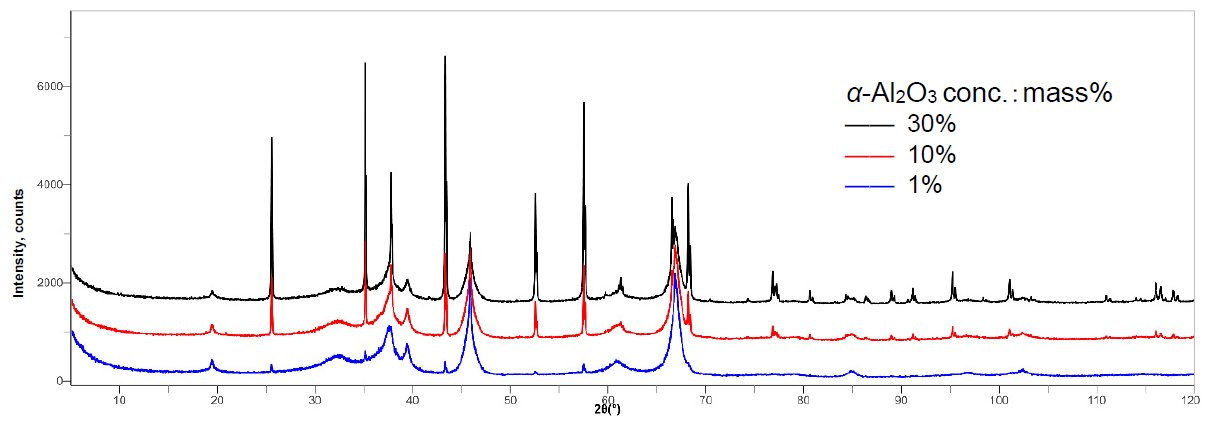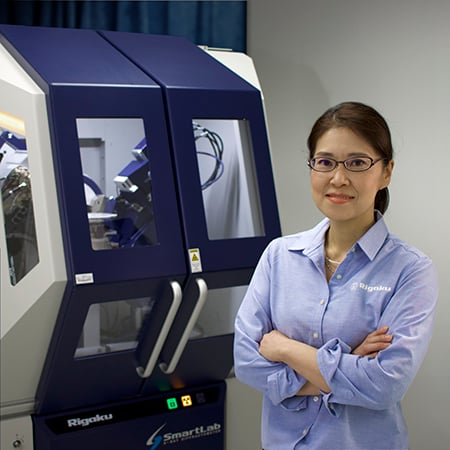Application Note B-XRD1115
Introduction
In quantitative analysis by the X-ray diffraction method, it is necessary to accurately determine the integrated intensities of peaks corresponding to each component. However, it is difficult to calculate integrated intensities for a compound having low crystallinity and, therefore, broad peaks. Our new quantitative analysis method, the Direct Derivation (DD) method, performs Whole Powder Pattern Fitting (WPPF) based on the measured profiles of a single component. As a result, WPPF can be easily performed even on compounds that show complex patterns that conventionally make it difficult to calculate the profile function from the crystal structure. Here, mixtures of α-Al₂O₃ and γ-Al₂O₃ were quantified.
Measurements and results
Al₂O₃ has polymorphic forms, α-type (high-temperature type) with high crystallinity and γ-type (low-temperature type) with low crystallinity. Here, three α-Al₂O₃ / γ-Al₂O₃ mixtures were created with α-Al₂O₃ concentrations of 1, 10 and 30 mass% respectively. The 2θ range from 5 to 120° was measured at 10°/ min. Figure 1 shows the obtained X-ray diffraction profiles in multiplex format, and Table 1 shows the Rwp, S value, preparation value and quantitative value of the analysis results of the three mixtures. The results show that accurate quantitative values can be calculated for substances with low crystallinity.
 Figure 1: Multiple X-ray diffraction profiles obtained from mixtures of α-Al₂O₃ and γ-Al₂O₃
Figure 1: Multiple X-ray diffraction profiles obtained from mixtures of α-Al₂O₃ and γ-Al₂O₃
Table 1: Rwp, S value, preparation value and quantitative value for α-Al₂O₃ (mass%)
| 1% | 10% | 30% | |
| Rwp (%) | 8.58 | 7.70 | 7.69 |
| S | 1.3188 | 1.1698 | 1.1527 |
| Preparation value | 1.01 | 10.01 | 30.04 |
| Quantitative value | 1.01(3) | 9.96(4) | 29.67(4) |
References
(1) H. Toraya: J. Appl. Cryst., 49 (2016) 1508-1516.
(2) H. Toraya: J. Appl. Cryst., 52 (2019) 520–531.

